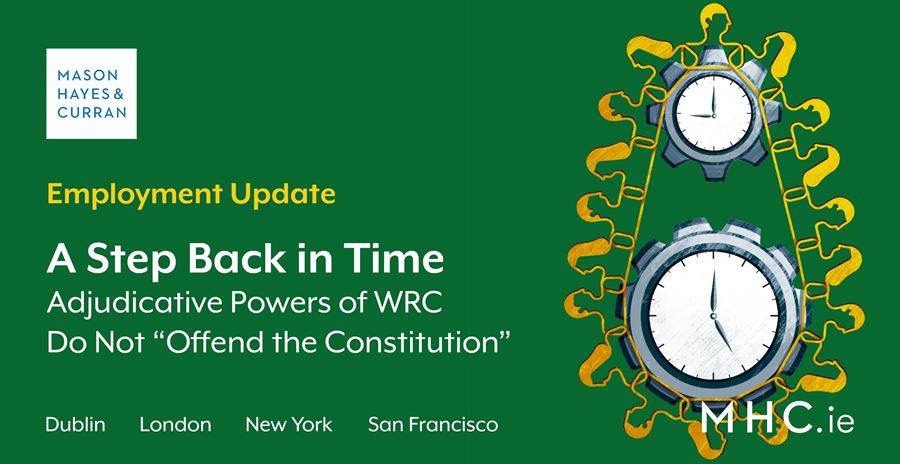
The Supreme Court has rejected a challenge to the constitutionality of the State’s system for resolving workplace disputes. The Workplace Relations Commission’s (WRC) power to adjudicate disputes between employers and staff was deemed not to “offend the Constitution”. However, the Supreme Court held that the blanket ban on public hearings, and the lack of capacity for taking evidence on oath was unconstitutional. The legislation governing the WRC must now be amended. This more or less means that the WRC is returning to format of its previous incarnation, the Employment Appeals Tribunal (EAT).
Background
The case originated in 2016, when an employee took an unfair dismissal case against his employer, Buywise Discount Store Ltd.
The WRC Adjudication Officer dismissed his case based on preliminary written submissions without allowing a full hearing to be held, including cross-examination of witnesses. The WRC conceded that the officer’s decision should be quashed because of “administrative error”.
However, the employee also challenged the constitutionality of general WRC procedures as laid out in the Workplace Relations Act 2015 (the 2015 Act).
In his challenge, the Supreme Court had to decide whether the WRC process amounted to the administration of justice which is required under the Constitution to be administered in the courts. The Supreme Court also had to decide whether the statutory framework adequately vindicated an employee’s rights under the Constitution and the European Convention on Human Rights.
The High Court had found that the activities of the WRC did not constitute the administration of justice, due to the fact that the WRC was unable to enforce its decisions without going through the District Court.
Main Findings
The Supreme Court reversed the High Court decision, ruling that the activities of the WRC and the Labour Court did constitute the administration of justice, but instead held it is a limited administration of justice which is permitted under Article 37 of the Constitution. Article 37 allows for limited judicial functions and powers to be conferred on statutory bodies, such as the WRC.
In relation to the procedures of the WRC, it was found that the blanket requirement that Adjudication hearings take place in private was unconstitutional and that from now on they shall be public.
The Court also held that it was unconstitutional that Adjudication Officers did not have the capacity to take evidence on oath and noted that the 2015 Act will also have to be amended in this regard.
The Supreme Court held that these findings should not have any impact on previous or current cases before the WRC, except if an Adjudication Officer is of the view that evidence on oath is required.
The lack of an express provision in the 2015 Act for the right to cross-examine witnesses was also criticised but it did not render the legislation unconstitutional.
Conclusion
When introduced, one of the main pillars of reform brought in by the WRC was that hearings were in private, with the parties’ names anonymised. However, while this remains the case in relation to published decisions, the fact that hearings will now take place in public no longer guarantees this right. Equally, the previous dispensing of taking evidence on oath was partly due to an attempt to shorten the timeframe for hearings. However, its explicit reinstatement will impact the duration of hearings and increase legal costs.
In short, the WRC has returned to very similar model seen in the old EAT which will impact on the strategy employed, time spent, and the costs incurred when handling workplace disputes. The threat of a public claim may serve as an additional negotiation tool as the potential reputational harm will need to be factored in.
If you have any queries please contact a member of our Employment Law & Benefits team.
The content of this article is provided for information purposes only and does not constitute legal or other advice.





